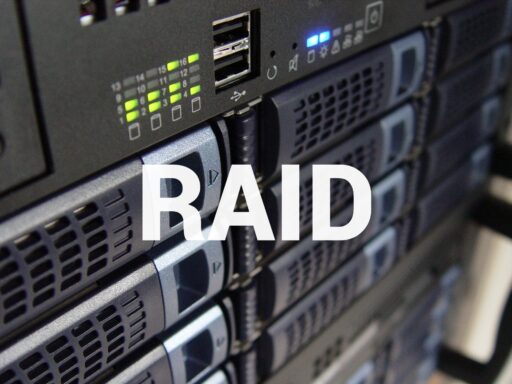
Whether you should go with a dedicated server or a VPS isn’t as simple as price
Whether you should go with a dedicated server or a VPS isn’t as simple as price because what you should be looking for is which type of server most closely matches your specific web hosting requirements, not just for today, but for years down the road. Is it better to start small and upgrade as required or should you acquire ample resources upfront and grow into them?
Operating Systems and Control Panels
Essentially, any OS that you can run on a dedicated server will also run on a VPS service, given sufficient resources. The same applies to control panels. It should be noted that the most popular control panel, cPanel, recommends at minimum 2GB of RAM.
Of course, you’re not locked into cPanel. There are plenty of free and paid alternative control panels available such as Webmin, Virtualmin and DirectAdmin.
 Middle Ground Between These Services?
Middle Ground Between These Services?
Dedicated servers are generally considered an upgrade from a Virtual Private Server, but that’s not always true, in either hardware or price. There is middle ground where some crossover occurs. Of course, low end VPS packages can’t compete with low end dedicated servers, but high end VPS services can and do compete favorably with many dedicated server packages, especially Atoms and older CPUs.
Price Range
The price range for both of these types of web hosting services varies from a couple of dollars to hundreds of dollars per month, and some over a thousand dollars. If you’re low balling on price, then don’t expect much on your VPS in terms of vCores, RAM, disk space, DDoS protection or management services. The same applies to dedicated servers, except you wouldn’t be talking about vCores, rather the age and processing power of its CPU.
Virtual processors
Virtual processors are physically mapped to available logical processors and are scheduled by the Hypervisor software to allow you to have more virtual processors than you have logical processors. 1 vCPU does not equal 1 core. There is no 1 to 1 relationship between vCPU and core in any virtualization software. When receiving two cores, in reality you’re receiving access to two threads of the CPU.
 What is a VPS?
What is a VPS?
A VPS service is essentially a shared service in a virtualized container. What it shares are virtual CPU cores, RAM and disk space. A dedicated server is just that – dedicated resources. It should be noted that there are different ways to provision VPS services, including OpenVZ, XEN and KVM. Of those three, OpenVZ is the most apt to be over-provisioned, while KVM has grown to be the most popular.
If what you’re looking for is a large repository, then VPS wouldn’t be the way to go, but if you’re only looking to provision a small DNS service, then a VPS would be ideal. The same would apply if you’re looking to provision a VPN endpoint or small email server.
 Let’s talk about management services between these two types of services.
Let’s talk about management services between these two types of services.
It’s quite easy to find managed VPS service providers, but not so easy with dedicated servers as the trend today seems to be unmanaged and bare metal. For consumers looking to upgrade from shared or reseller hosting, what they’ve become accustomed to is their provider managing the server in the background. The jump in price to an unmanaged VPS service isn’t that alarming, but when pricing out managed VPS services, that delta widens significantly.
Attempting to manage a server on the fly rarely works out well, especially in today’s world of increased cybercriminal activities. Of course, there are 3rd party vendors that offer management services if you go the route of unmanaged. For those dedicated service providers that do offer management services, I’ve seen pricing over one hundred dollars per month. Suddenly that $149 server becomes a $249 server.
 Addressing Application Requirements
Addressing Application Requirements
If your application requires 64GB of RAM or more, a VPS is probably not a viable cost-effective solution, nor would it be if you require extreme amounts of data transfer or disk space. Everything really depends on your application and resource requirements. If you don’t know how to determine what those are, contact each prospective provider and ask their advice.
What do many VPS and dedicated servers have in common?
The answer to that is SSD or NVMe drives. Why? The price of solid state drives has diminished sufficiently so that many providers now provision them in a good number of their packages. Many service offerings that include large spinning disk hard drives (HDD), give you the option to substitute smaller SSDs. If you’re looking for a high performance VPS, then SSD or NVMe is the right solution.
BROUGHT TO YOU BY PROLIMEHOST
We’ve been in the web hosting industry for over a decade, helping hundreds of clients succeed in what they do best and that’s running their business. We specialize in Virtual Private Servers (VPS) and dedicated servers, with data centers in Los Angeles, Denver & Singapore.
VPS SERVICES: LIGHTNING FAST SSD VIRTUAL SERVERS
Our Virtual Private Servers all feature high performance Xeon processors and SSD storage in a RAID10 configuration to optimize your server’s performance, which dramatically enhances visitor experiences on your site.
That speed is backed by unparalleled 24/7 support, featuring both outstanding response AND resolution times to maximize your uptime.
Now is the time to join the ProlimeHost virtual private server revolution.
DEDICATED SERVERS: BACKED BY A 99.9% SLA NETWORK UPTIME GUARANTEE
We only use enterprise-class hardware in our dedicated servers and offer a four (4) hour hardware replacement. Throw in IPMI for remote management, support for public and private networks, free operating system (OS) re-installs, and SATA, SAS & SSD (including NVMe) storage. Call 1-877-477-9454 or contact us. For everything from gaming servers to cheap dedicated servers, we’re here to help.
ASIA OPTIMIZED SERVERS: IMPROVING CONNECTION SPEED AND QUALITY
Procuring an Asia optimized server improves the connection speed and quality between the server and the users in Asia or China. This can reduce latency, packet loss, jitter, and bandwidth issues that can affect the performance and reliability of the server and the applications hosted on it. For more information, please call 1-877-477-9454 or contact us




